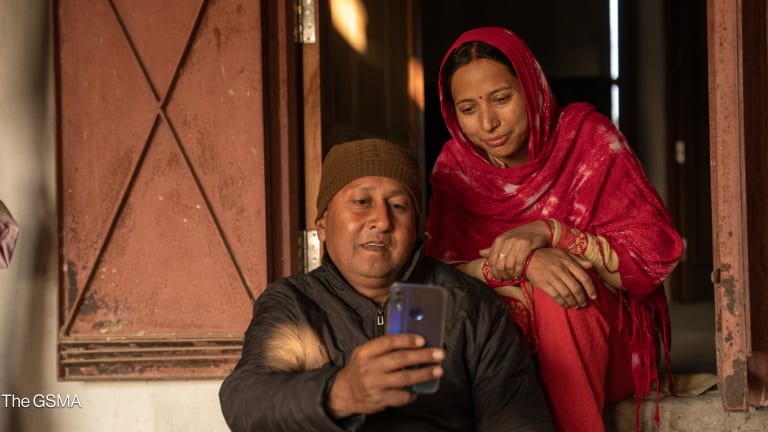
While the COVID-19 pandemic has changed so many facets of life, one thing it hasn’t changed is the speed at which we are connecting the world to broadband. It’s too slow — and that’s a huge problem.
Although billions of people have quarantined at home, dependent on the internet to learn, work, and access medical care and other essential services, 46% of the global population does not have access to the internet, and far fewer have access to fast, reliable, and affordable broadband.
That means billions have been left in the digital dust, unable to participate in “life during COVID,” watching as their connected peers leave them behind.
In 2017, Microsoft launched the Airband Initiative, our effort to close the digital divide and provide a blueprint that others can follow to accelerate efforts to close the broadband gap. It uses a four-part approach:
1. Removing regulatory obstacles to internet access technologies, such as TV white spaces, that help our partners extend their networks quickly and affordably in unserved, predominantly rural areas.
2. Partnering with local internet service providers that have the on-the-ground knowledge needed to provide affordable, reliable internet services.
3. Using technology to help improve rural productivity and livelihoods, by enabling rural digital transformation in newly connected areas, with a focus on supporting agriculture, education, rural entrepreneurship, and telemedicine, as well as off-grid energy sources.
4. Building a larger ecosystem of support, with a focus on stimulating international financing, to scale connectivity projects beyond our own direct investments.
Last year, at Devex’s “Future of Development Finance” event in London, I announced that the Airband Initiative was setting a goal of reaching 40 million underserved and unconnected people around the world by 2022. Thus far, we’ve made steady progress, so far providing access to nearly 17 million people — work that has only accelerated as a result of the urgent need for connectivity during the COVID-19 pandemic.
While these collective efforts have made a profound impact and connected millions, too many people continue to be left behind.
Even outside the pandemic, the stakes are high: Study after study indicates access to broadband has a direct impact on jobs and gross domestic product growth, and without broadband, communities are left in the economic dust. And teens without broadband internet are less confident about their future than their connected peers.
We knew the global digital divide was an issue before COVID-19, but the pandemic has illustrated the crisis in stark terms.
—According to the U.N. Broadband Commission for Sustainable Development, “universal broadband access is the vital catalyst needed to drive global economic recovery and accelerate lackluster progress towards the U.N. Sustainable Development Goals.” In more dire terms: if we don’t close the broadband gap, we may fail to achieve the Sustainable Development Goals aiming to “end poverty, protect the planet, and ensure that all people enjoy peace and prosperity.”
If there’s one bright spot to the pandemic, it’s that more governments, organizations, companies, and people than ever before are paying attention to the connectivity gap. We should capitalize on that ― we have an amazing opportunity to accelerate our collective work to connect people.
But we can’t do things the way we’ve always done them and expect a different result. We need to invest in new and innovative wireless technologies to connect people more rapidly around the world. We cannot accelerate quickly or affordably enough by relying primarily on expansion of fiber.
In terms of investment, what we’ve discovered is that big money is pretty easy to find — it is the small money that is hard, and it is this small money that empowers local actors who best know what their communities need and how to quickly bring coverage to people by building out from larger existing networks.
We also need more flexible financial models and public-private partnerships that allow for creativity, while operating with a sense of urgency and a focus on inclusion. Internet connectivity and technology infrastructure has made up a very small percentage of development bank funding historically. That’s a problem — given the scale of the issue, international financing organizations around the world should step up to the plate, and quickly.
We should also address the digital divide inclusively, ensuring that, for example, women ― who often use the internet at markedly lower rates than men ― have full and equal access to broadband and its transformative power. Microsoft recently partnered with the U.S. Agency for International Development to create the W-GDP Microsoft Women’s Digital Inclusion Partnership, which aims to significantly improve access to broadband for women around the world.
We’re making investments in local internet and communications technology companies serving rural areas in Colombia, Ghana, Guatemala, India, and Kenya. Separately, we’ve signed a memorandum of understanding with the U.S. International Development Finance Corporation to work together on global projects that will help close the connectivity gap.
We knew the global digital divide was an issue before COVID-19, but the pandemic has illustrated the crisis in stark terms. According to Tim Berners-Lee, the inventor of the World Wide Web, “the digital divide won’t disappear once this crisis is over… We must make sure those currently in the slow lane have the means to catch up. Otherwise, billions will be left behind in the dust.”
Right now, the virtual connection is simply not accelerating as quickly as the physical disconnection.
We have the power to transform billions of lives for the better if we work smart and work fast. Now is the time for all of us to work together to create real and lasting change.
Watch the session “Spotlight: Microsoft’s Airband one year on: Lessons learned” to learn more.








